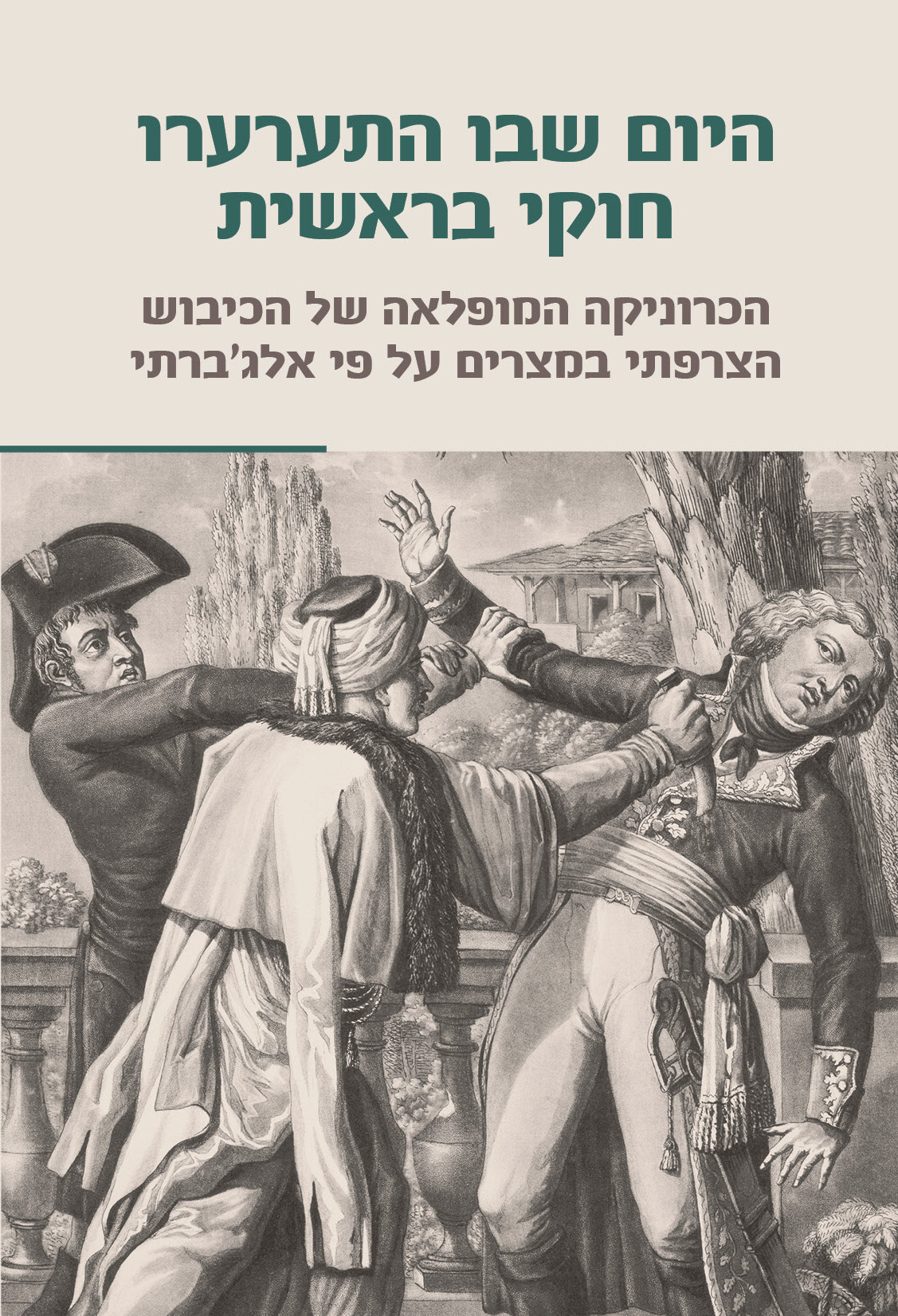

The Day on Which the Laws of Nature have Changed
“The French column, which advanced in order to fight Murad Bey, split according to their military strategy and drew near to the barricades in such a way that it surrounded the Egyptian army from behind and from the front. The French started beating their drums and shooting continuous fire from their rifles and cannons. At the same time, the wind picked up and the dust became thicker and the whole world was darkened by the smoke of the firearms and the dust borne on the wind. Ears were deafened by the continuous firing, until it seemed to people that the earth was quaking and the sky was falling upon it.”
This is a marvelous chronicle of the events written from the Arab point of view, and it is especially astounding in light of the conventions and the European history books familiar to the Hebrew reader. Abd Al-Rahman Al-Jabarti, who was 45 years old when the French troops landed in Egypt on July 1, 1798, sat down in real time to document the defining moment in modern history in which, according to him, the laws of nature changed. Al-Jabarti describes the events—and Napoleon Bonaparte, who was then only 29 years old—without the historiographic bias that in retrospect ascribes to the French military leader the power and status he achieved later in European history.
Abd Al-Rahman Al-Jabarti (1753–1825) is considered the first of the modern Arab historians and the most important writer of modern Egyptian history. Al-Jabarti was the only one of Sheikh Hassan Al-Jabarti’s sons to reach maturity. His father was learned in Islamic matters and a wealthy businessman who had extensive influence in Cairo and Istanbul. The younger Al-Jabarti had no official role in Cairo, but his many connections through his family’s status, particularly with Shams El-Din Abu Anwar El-Sadat, who was a kind of spiritual mentor, afforded him access to written works in real time in libraries, laboratories, and the research institute that the French established in the homes of the Mamluk beys who fled Cairo after the conquest. Al-Jabarti wrote three works that documented the years of French occupation. The Day on Which the Laws of Nature have Changed is part of the third and longest of the chronicles, ʿAjaʾib al-athar fi’l-tarajim wa-’l-akhbar, which was completed in 1805–1806. The Hebrew translation is based on the version that was first printed in Cairo in 1879.
Translator: Immanuel Koplewitz | Poetry translation: Idan Barir | Translation editors: Eyad Barghuthy and Yoni Mendel | Academic editing and epilogue: Tammi Sarfatti | Scientific advisor: Avi Rubin
